Customized Titanium Pumps With Competitive Prices
Wstitanium manufacturing titanium pumps have set an industry benchmark in the field of industrial fluid transportation with their excellent performance, reliable quality and highly customized services. Titanium pumps are used in many industries such as chemical, marine, aerospace, food, and petroleum.
- 24/7 Online Service
- OEM/ODM Support
- ISO9001 & ISO 13485
- SGS, BV and CE Certificated
- Casting
- TIG & MIG
- CNC Milling & CNC Turning
- Gr1, Gr2, Gr5, Gr7, Gr9, Gr12
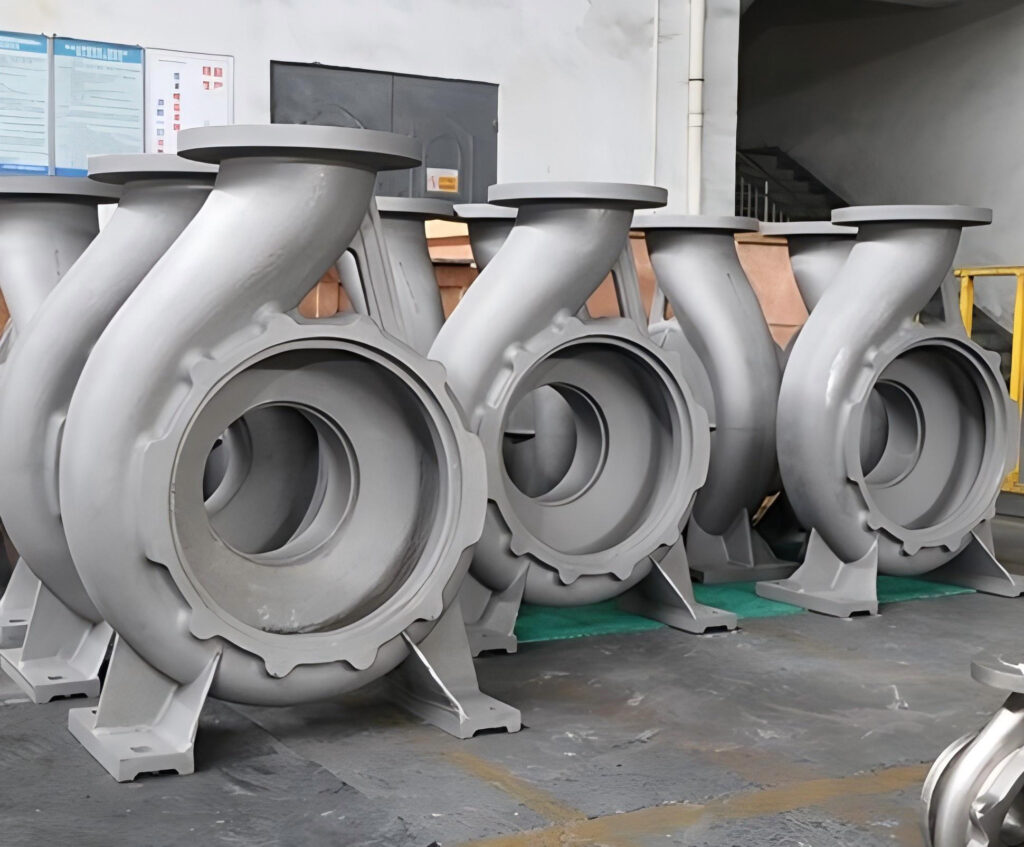
Trustworthy Cast Titanium Pump Body Manufacturer - Wstitanium
As a fluid conveying equipment with important application value in the industrial field, titanium pumps have significant advantages such as excellent corrosion resistance, high strength and light weight, good high and low temperature performance, and excellent anti-cavitation performance. Whether it is industrial pure titanium Gr1-Gr4, or excellent titanium alloy Gr5, Ti-5553, Ti-1023, etc., Wstitanium provides you with the most suitable material options according to different working conditions to ensure that titanium pumps can operate stably in various complex environments. In manufacturing, from raw materials to casting, CNC Machining, welding and assembly, strict quality control is implemented to ensure that each titanium pump has excellent performance and reliable quality.
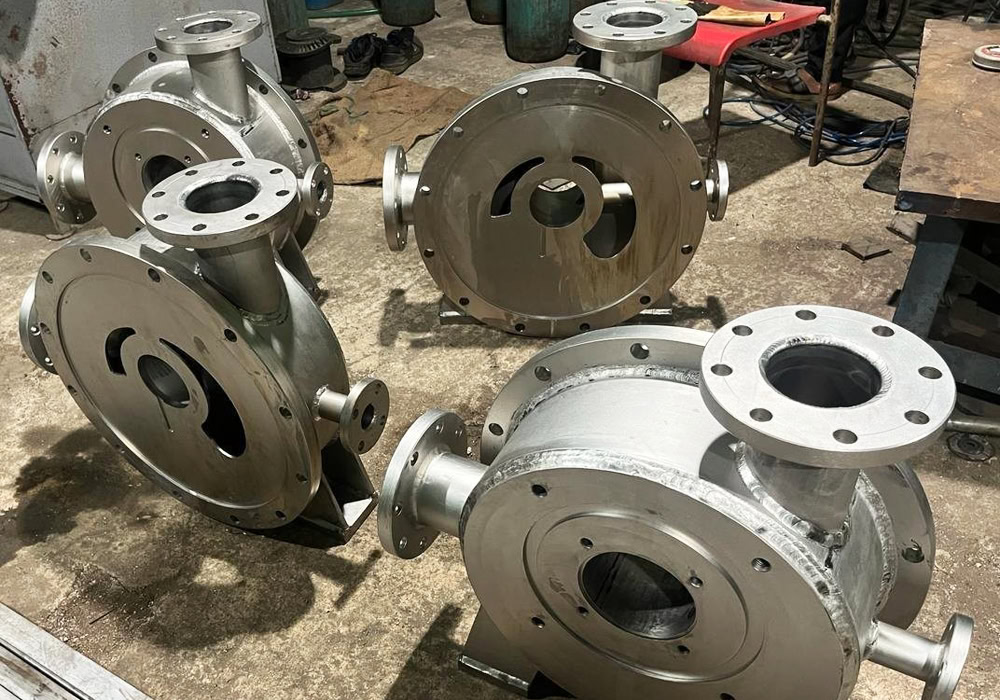
Gr1 Titanium Pump
Gr1 is a low-strength industrial pure titanium with a tensile strength of 240-370MPa and a yield strength of about 170-275MPa. It is mainly used in some applications that do not require high strength but have certain requirements for corrosion resistance. Such as the transportation of dilute acid and dilute alkali solutions with weak corrosiveness. Its cost is lower than other grades of titanium.
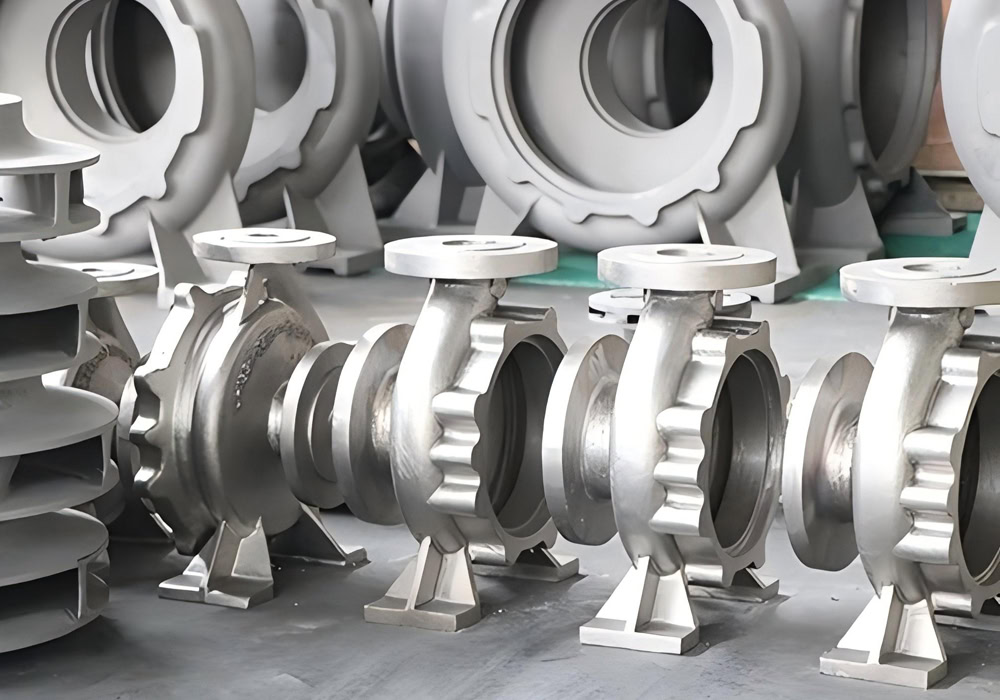
Gr2 Titanium Pump
Gr2 has moderate strength and excellent comprehensive performance. The tensile strength is generally between 380-540MPa and the yield strength is about 275-410MPa. TA2 has excellent corrosion resistance and can remain stable in most common corrosive media, such as hydrochloric acid, seawater, etc. It is often used to manufacture key components such as pump bodies, impellers, shafts, etc.
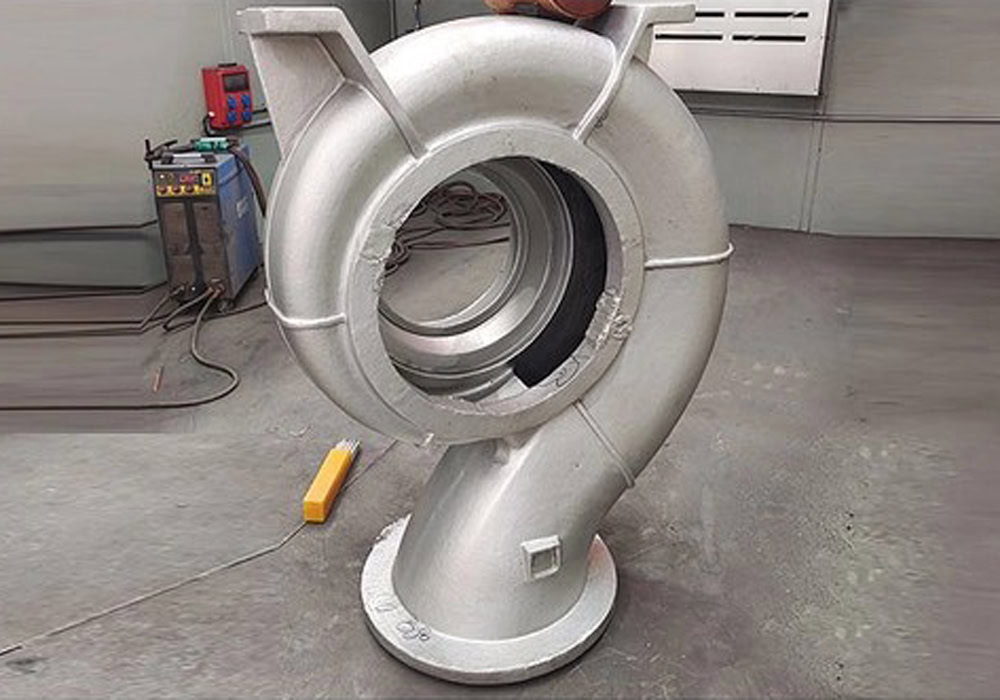
Gr3 Titanium Pump
The strength of Gr3 is higher than that of TA2, with a tensile strength between 480 and 620 MPa and a yield strength of about 345 to 485 MPa. This makes TA3 perform better under conditions of higher pressure and mechanical load, while maintaining good corrosion resistance. Such as high-pressure chemical transportation systems, oil production, etc. Its machining difficulty is also increased accordingly.
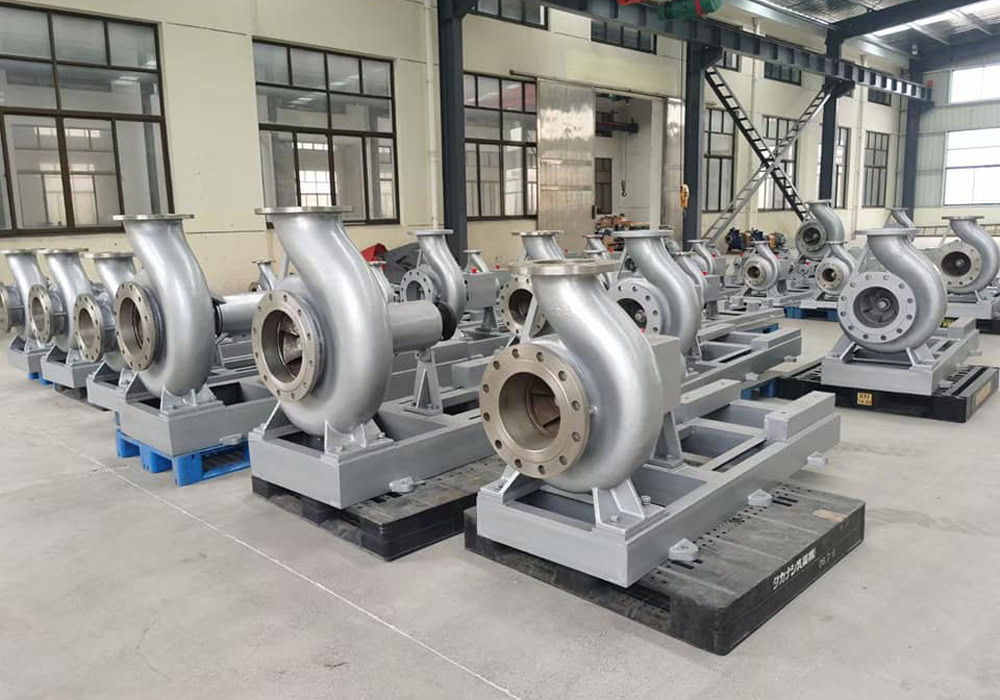
Ti - 5553(Ti - 5Al - 5Mo - 5V - 3Cr)
Ti-5553 is a near-β-type titanium alloy with high strength, high toughness and good processing performance. Its tensile strength can reach more than 1100MPa and its yield strength is about 1000MPa. Its corrosion resistance is better than some other titanium alloys when dealing with corrosive environments with complex chemical compositions, especially reducing media. Its cost is relatively high.
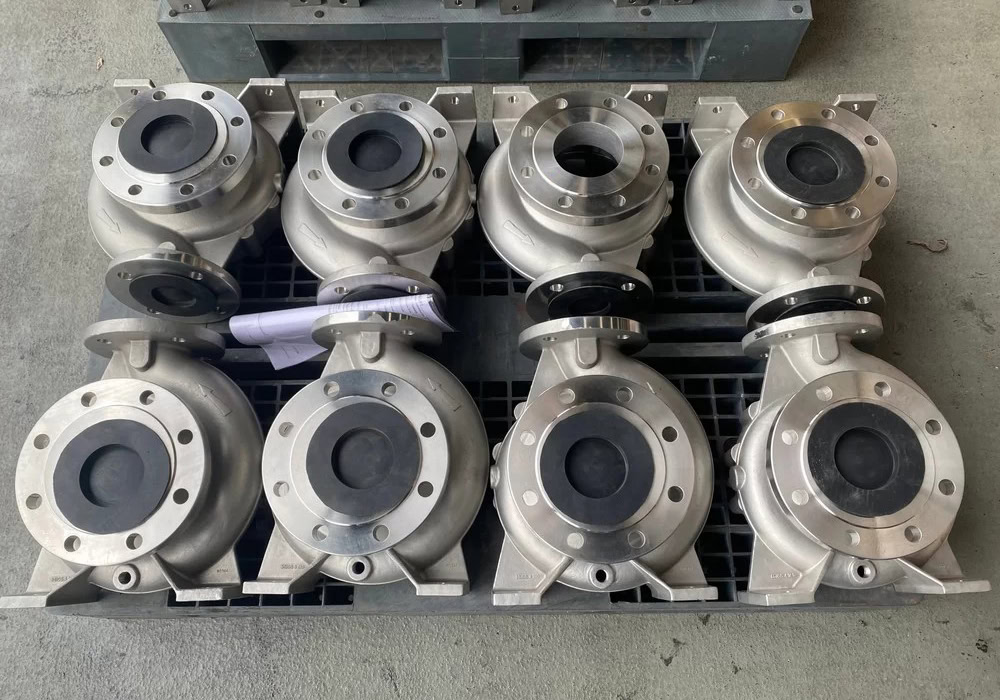
Gr5 Titanium Pump
Gr5 is a typical α+β type titanium, containing 6% aluminum (Al) and 4% vanadium (V), and can work stably in a variety of complex corrosive media, such as aerospace, chemical, medical, etc. Gr5 is often used to manufacture key components of titanium pumps, such as impellers, shafts, etc., and can operate stably for a long time under high load, high pressure and strong corrosion environments.
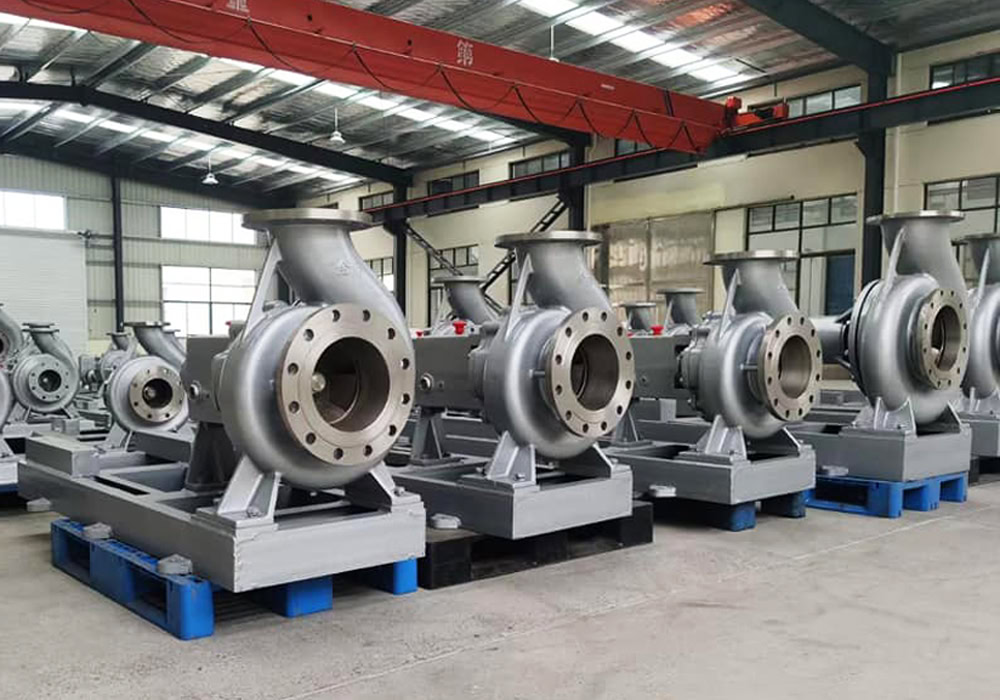
Ti - 1023(Ti - 10V - 2Fe - 3Al)
Ti – 1023 is a β-type titanium alloy. Due to its good hardenability and welding performance, when manufacturing large and complex titanium pumps, it is used to manufacture segmented parts of the pump body, and then assembled into a complete pump body by welding, which can not only ensure the strength and corrosion resistance of the pump body, but also reduce costs.
Manufacturing Titanium Pump
Wstitanium has developed a complete and strict titanium pump manufacturing process. From the careful selection of raw materials to the strict testing of the final product, each link embodies the technical strength and the persistent pursuit of quality, ensuring that every titanium pump shipped has excellent performance and reliable quality.
For casting titanium pumps, Wstitanium uses advanced computer-aided design (CAD) technology to accurately design molds based on the shape, size, precision requirements and casting characteristics of the parts. During the design process, key factors such as shrinkage, casting system, exhaust system, etc. during the casting process are fully considered to ensure the quality and performance of the castings. For parts with complex shapes, a split mold design may be adopted, and then precisely assembled before casting to ensure the integrity and reliability of the mold.
After the mold manufacturing is completed, the key casting link is entered. Titanium alloys are melted by vacuum consumable arc furnace melting or electron beam cold bed furnace melting technology to ensure that the purity and quality of the alloy meet the highest standards. During the casting process, advanced automated casting equipment is used to strictly control parameters such as casting temperature, casting speed and casting pressure to ensure that the liquid titanium alloy can evenly and quickly fill the mold cavity to avoid casting defects such as pores, shrinkage holes, inclusions, etc. In order to further improve the quality of castings, the company will also adopt a series of advanced auxiliary processes, such as reasonably setting the cold iron in the mold, accurately controlling the solidification sequence of the casting to improve the internal structure of the casting; using vibration casting technology, by applying appropriate vibration, promoting the flow of liquid metal and the discharge of gas, and improving the density and mechanical properties of the casting.
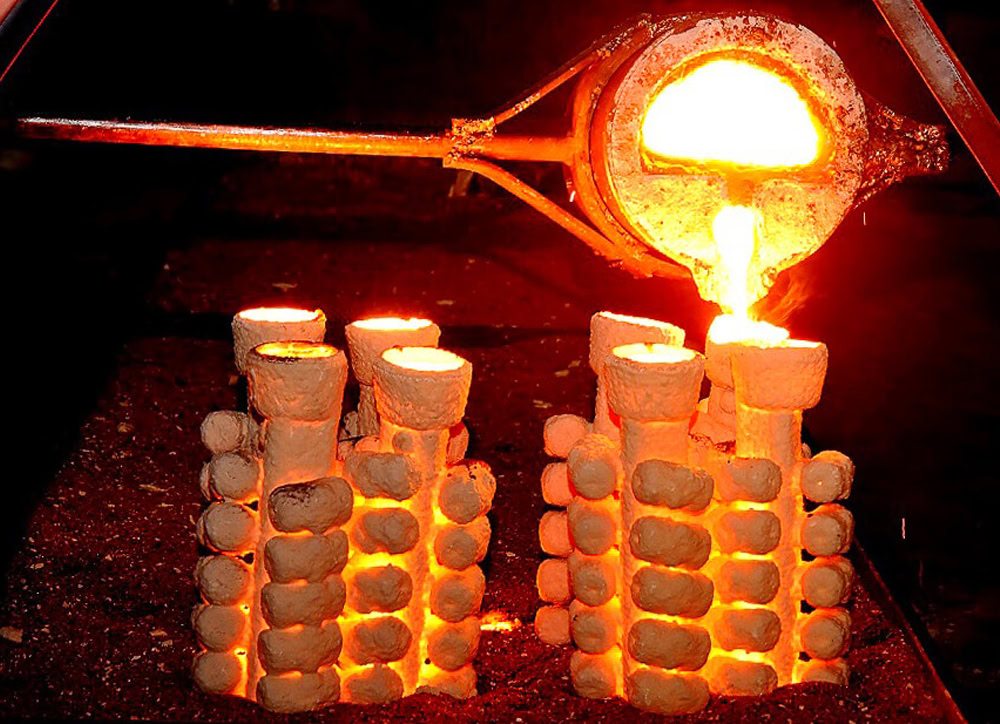
After the casting is completed, the casting needs to go through a series of strict post-processing processes to achieve the performance and quality standards required by the design. First, demolding and surface cleaning are carried out to remove the molding sand, residual mold materials and other impurities on the surface of the casting to ensure the surface finish. Then heat treatment is carried out. According to the material grade and performance requirements of the casting, the appropriate annealing, normalizing or solution aging treatment process is selected to eliminate the residual stress inside the casting, improve the mechanical properties and structure of the casting, and improve its strength, toughness and corrosion resistance.
The heat-treated castings are machined with high precision, and the dimensional accuracy and surface roughness required by the design are achieved through CNC turning, milling, drilling, grinding, etc. .
Turning is an important technology commonly used in titanium pump manufacturing. It is mainly used to process the outer circle, inner hole, thread and other rotating surfaces of pump body, impeller, shaft and other parts. Wstitanium has summarized a set of optimization solutions for titanium alloy turning. In terms of tool selection, high-performance carbide or ceramic tools are preferred, among which coated carbide tools show good cutting performance when turning titanium alloys. In terms of cutting parameter setting, lower cutting speed, larger feed rate and smaller cutting depth are used to effectively reduce the generation of cutting heat and tool wear. At the same time, an efficient cutting fluid cooling system is equipped to ensure sufficient cooling and lubrication during the processing process, reduce cutting temperature and improve the processing surface quality.

Milling is often used for complex shapes such as planes, grooves, keyways, etc. of titanium pumps. Wstitanium selects different types of milling cutters, such as end mills, end mills, and face milling cutters, according to the different shapes and sizes of titanium pumps. In order to improve milling efficiency and processing quality, high-speed milling and 5-axis linkage milling are introduced. In the high-speed milling process, the cutting speed and feed rate are precisely controlled to avoid the degradation of titanium alloy material performance due to excessive cutting heat. At the same time, advanced cooling and lubrication methods such as high-pressure cooling and minimal lubrication are used to effectively reduce tool wear and improve surface quality.

CNC drilling and boring are used to process various precision holes on titanium pump parts, such as the inlet and outlet holes of the pump body, bearing holes, etc. The expansion and deformation of the holes are easy to occur during the drilling and boring process, affecting the processing accuracy. Wstitanium uses a smaller feed rate and a higher cutting speed, and makes full use of the cutting fluid for cooling to reduce the expansion and deformation of the holes. For holes with high precision requirements, reaming or fine boring are used to further ensure the dimensional accuracy and surface roughness of the holes. When processing deep holes, advanced deep hole tools such as gun drills, BTA deep hole drills, etc. are used, and cooling and chip removal systems are equipped.
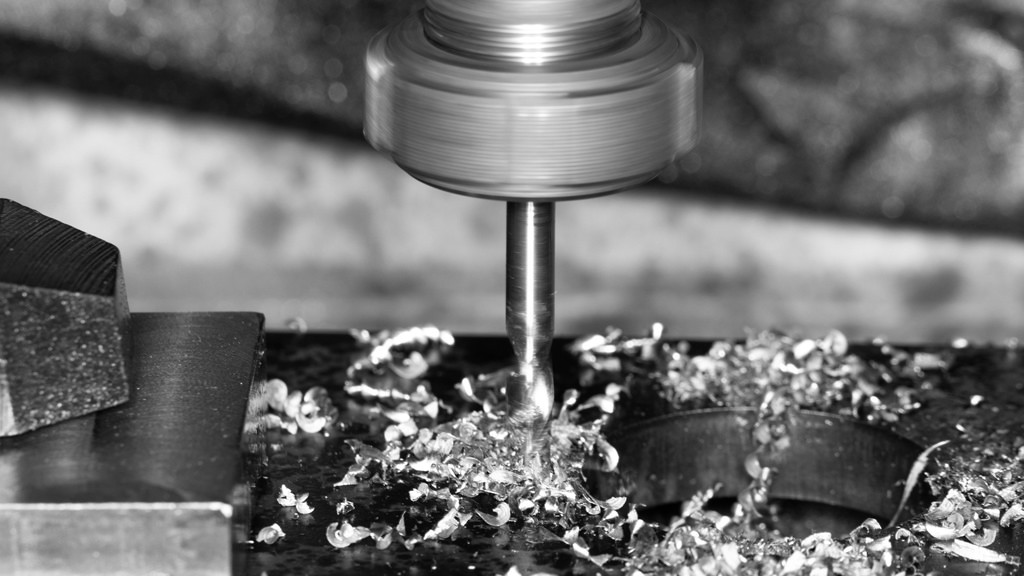
Grinding is mainly used for finishing the surface of titanium pump parts to obtain extremely high dimensional accuracy and surface roughness. In terms of grinding wheel selection, ceramic bond grinding wheels or resin bond grinding wheels are selected, and the appropriate abrasive particle size and hardness are accurately selected according to the hardness and grinding requirements of titanium alloys. In terms of grinding parameter settings, lower grinding speeds and feed rates, larger grinding depths, and efficient grinding fluid cooling systems are used to reduce surface defects.
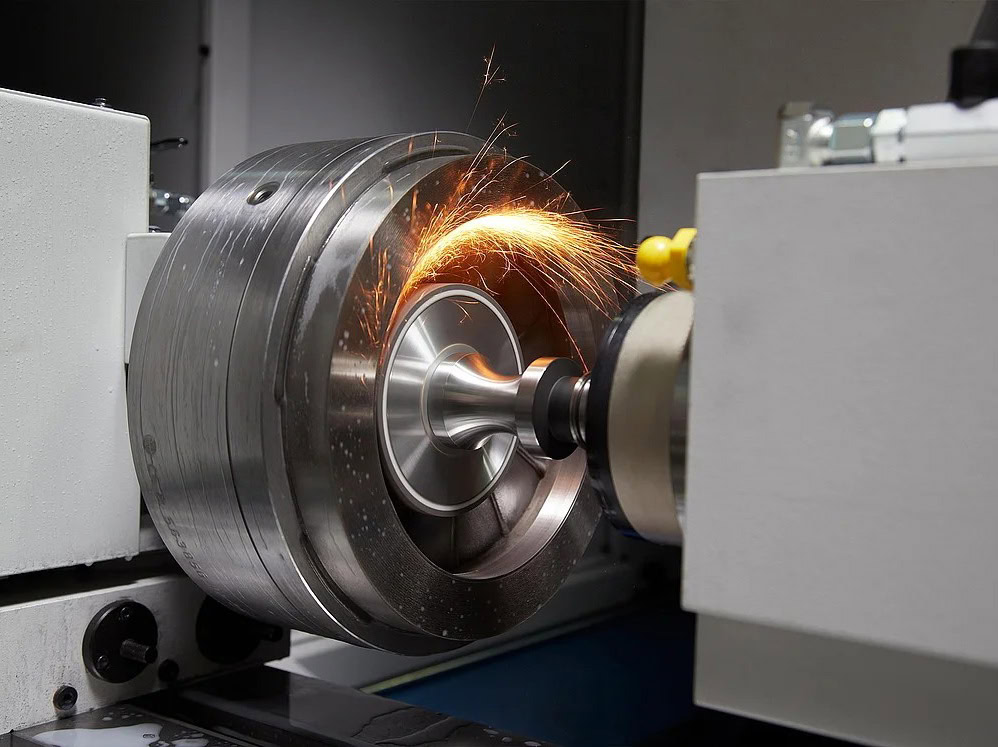
Customized Titanium Pump Specifications
Wstitanium is well aware that different industries and application scenarios have very different requirements for titanium pumps, so it provides highly flexible and comprehensive customized services, from precise customization of flow and head to material selection, structural design, and personalized configuration of intelligent and automated functions to meet customers’ diverse and specialized needs.
Determine Parameters
When customizing titanium pumps, flow and head are core performance parameters, which must be accurately calculated and determined based on specific working conditions. Different industrial fields have different production processes and process requirements, and the flow and head requirements for titanium pumps are also very different. For example, for a chemical company with an annual output of millions of tons, the flow of the titanium pump in its circulating cooling system may need to reach hundreds of cubic meters or even thousands of cubic meters per hour, and the head is between tens of meters and hundreds of meters to meet the cooling needs in large-scale production processes.
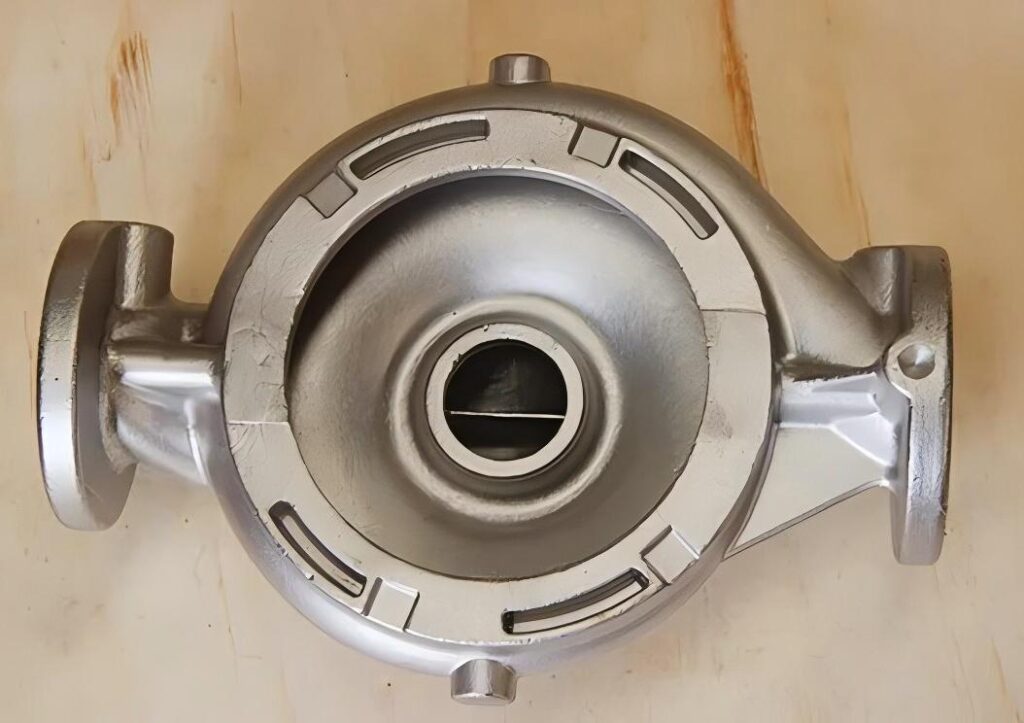
Design Optimization
To meet your special requirements for flow and head, Wstitanium conducts all-round optimization and innovation in titanium pump design. In terms of impeller design, for working conditions with high flow requirements, the impeller design concept of large diameter and wide blades is adopted. By increasing the flow area of the impeller, the flow output capacity of the pump is effectively improved. At the same time, the shape and angle of the blades are optimized to make the flow of liquid in the impeller smoother, reduce energy loss, and further improve the flow performance.
For working conditions with high head requirements, impellers with higher blade outlet angles and appropriate number of blades are designed. Higher blade outlet angles can enable the impeller to exert greater centrifugal force on the liquid, improve the impeller’s ability to work on the liquid, and thus achieve higher head.
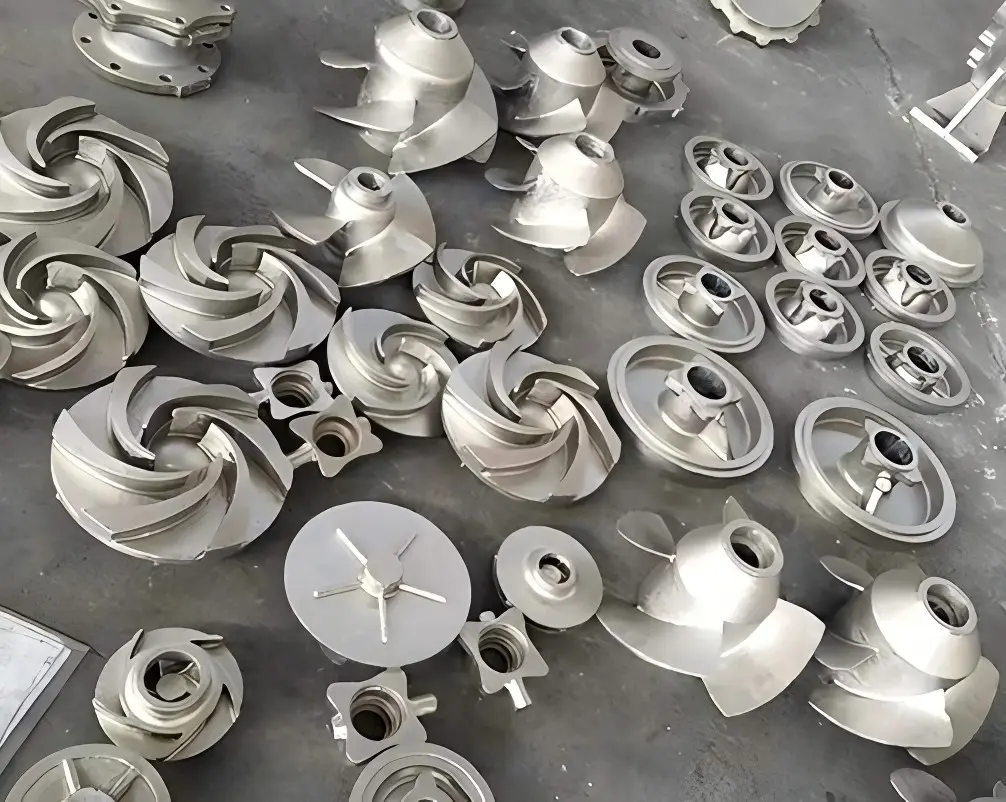
Material Options
Wstitanium takes into full account the corrosiveness and chemical properties of different media and provides you with precise material selection customization solutions. When facing strong oxidizing acids, such as concentrated sulfuric acid and concentrated nitric acid, industrial pure titanium Gr2 becomes an ideal material. For some working conditions with complex chemical compositions, especially reducing media, such as hydrochloric acid and hydrofluoric acid, Wstitanium will recommend the use of titanium alloys with stronger corrosion resistance, such as Ti-5553.
In actual industrial applications, installation space limitations are a common problem. Wstitanium provides flexible and diverse structural design customization solutions based on the special installation space conditions at the customer’s site. For factories with compact equipment layout and limited installation space, a compact pump body structure is designed. The motor and pump body are integrated to reduce the floor space, while optimizing the internal structure and improving space utilization. This integrated design not only saves space, but also reduces the connection parts between the pump and the motor, improves transmission efficiency, and reduces the probability of failure.